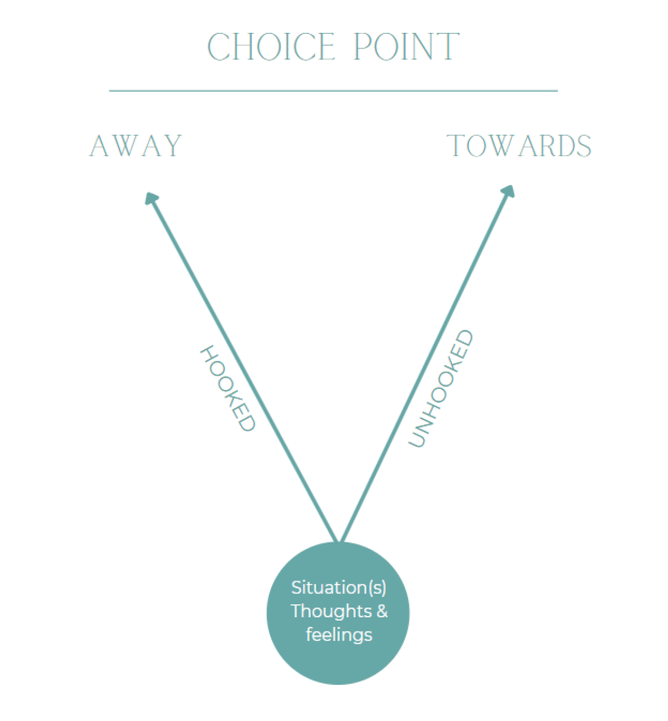On a couple of Saturdays, I asked two 15-year-old girls to help me be curious and come up with different ways to use the emotional culture deck in school. We came up with different ideas and different questions we could use it for.
For example for an assignment: how do we want to feel during the assignment? And what might we feel but don't want to feel as we go through it?
We also talked about interactions with teachers, especially those that we don't get on with. How can we use the emotional culture deck to have more emotional regulation around working with those teachers that we feel don’t understand us?
We also came up with choosing a word from the deck and then writing a story around it. One of the words that we chose was perfectionism. We put the card in the middle, and then we kind of like brainstormed around it.
This is what one of the girls wrote down around it:
- It stops me from feeling like I'm failing.
- Makes me want to help people.
- It keeps me curious
- And it makes me overthink
- It stops me from feeling embarrassed.
- I get joy.
- It stops me from trying new things.
- I feel anxious, reactive, and impatient.
- It keeps me safe.
- It stops me from feeling judged.
- It creates doubt.
- It makes me feel closed.
- It stops me from taking risks because I'm scared to fail.
- It can energize me.
- I can feel insecure and assaulted, controlled and confident.
Then we tried to distinguish the negative from the positive emotions and the long term from the short term effects. And I asked them to think about the way this is helping them, and how it’s holding them back?
I explained what we call a choice point: From a thought or a feeling, like perfectionism, what do we want to move towards, and what do we want to move away from. Usually, the thing we want to move away from gives us short term benefits, which keep us hooked. But they come with a long term cost.
So we would put perfectionism at the bottom, and then look at our away moves which are hooked, and then look at our towards moves, how is it helping us move towards our goals or what we want?
This is what she wrote down:
Away Moves:
- Stop my social life (spending too much time being perfect means that she doesn't have as much time to hang out with her friends)
- Have no free time (because she's always studying and trying to perfect it)
- Can't relax (she finds it really hard to switch off from schoolwork)
- Always stressed and overthinking everything
- If I don't reach my standards, I feel like a failure
- Never feel like I'm good enough
- I always feel like I'm being judged always worrying
- Anxious about grades
- I don't take risks in case I fail.
Those were the things keeping her stuck, those were the feelings that were showing up that she would rather not feel.
Then we looked at her towards moves:
- Finishing the year with excellence and endorsement to be successful
- Stop me from feeling like a failure
- Feeling in control
- Proud and confident when I achieve the stuff I wanted.
It's really quite interesting when you see that the negative aspects are really outweighing some of those positive emotions.
The long-term effects of Perfectionism
Working with these emotions was a really good way for them to get an idea of how to tap into emotions and work with them.
What drives them? What do they want to move away from, and what do they want to move towards? Understanding, and being conscious of this choice point is the start to self-regulate and have a little more balance in life.
I think it’s really important for these young women to get a sense of who they are. Part of this idea behind brainstorming about the effects of perfectionism and overthinking is for them to realize the long term effects. It can really lead to burnout, and to the whole idea of imposter syndrome, that whatever I do is not good enough.
Maybe she’s just one of these girls that love learning… But my worry is that she intends so much on being perfect that she loses the joy: the richness of the experience of what learning can be.
There is also danger in ‘Not taking risks in case I fail’. Failing is part of life and sometimes that's where the richness grows and the learning happens.
Sometimes even just picking one word and one emotion and really picking that apart gives great insight into how you are as a perso, and what your strengths and weaknesses are. It's a nice little check-in, and a different way of using the ECD with teenagers. But it can be used in any circumstance as a parent.
Is perfectionism serving you?
There are definitely elements of perfectionism that serve you. But quite often what serves you in particular, is outweighed by what’s dragging you down. When we can learn to let go of perfectionism, and just be good enough, it can take the pressure off us. We can thrive more.
And when we feel good enough, we're actually achieving more than when we're striving to be perfect, because we've given ourselves that space and grace. We can step back, be more open-minded, be less judgmental of ourselves and others and we can hold ourselves in a place of compassion and acceptance.
I think that that's where the richness really lies. Perfectionism keeps us safe and keeps us working towards our goals, which is really important because if we had no get-up and go, then obviously we would never move forward. As long as we’re aware, and recognize when every now and then we're gonna go into the more negative aspects of perfectionism, we can try and come back into a more neutral place. It’s really beneficial to be able to sit in there and just understand exactly which emotions are driving us. Why we feel them, how we feel them, and then how to harness them for our greater good, our greater well-being and our mental health.






